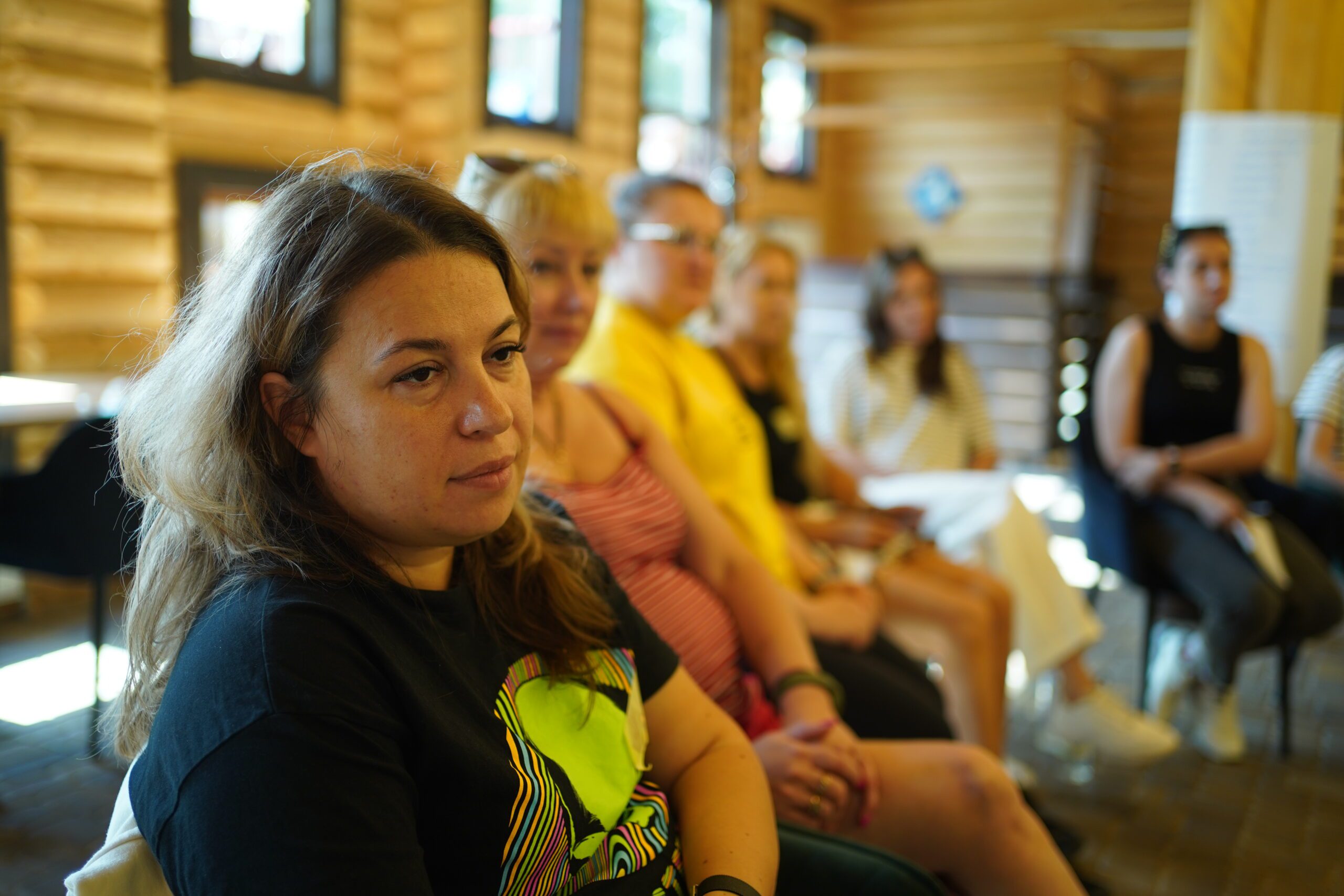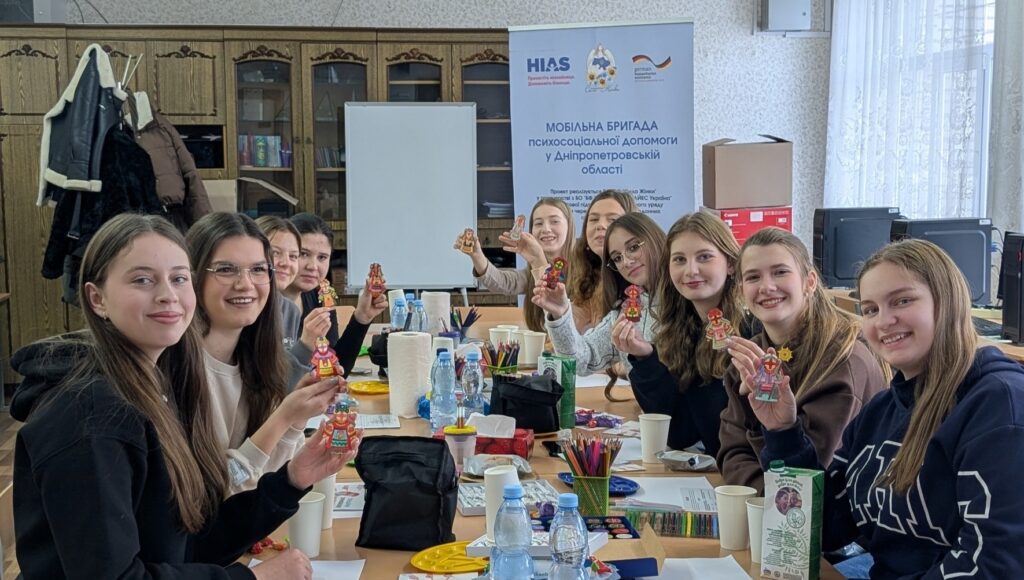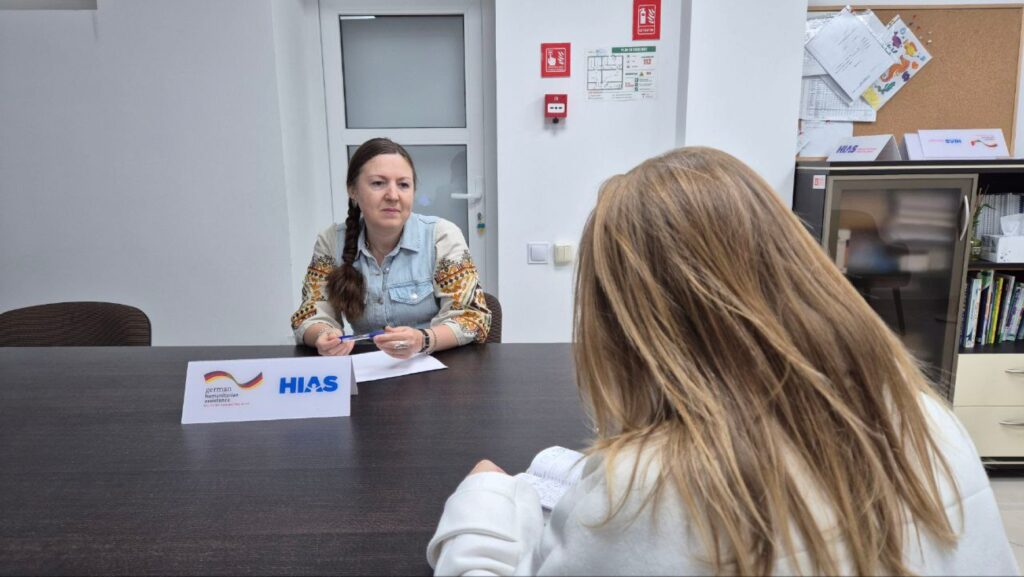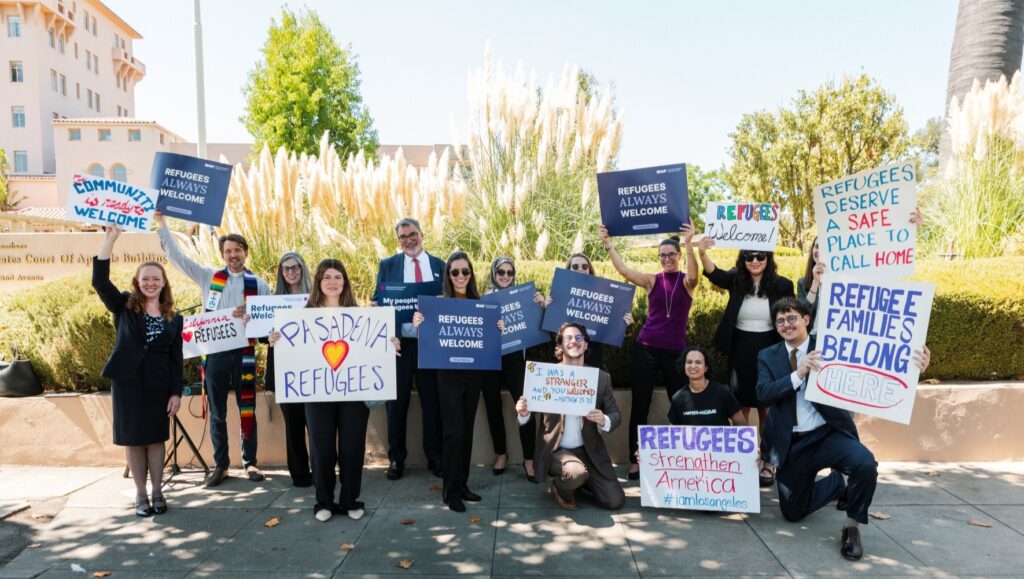
Three years after the onset of full-scale war in Ukraine, women’s mental health is a growing concern. A study from 2023 showed that 39% of Ukrainian women and 33.8% of men screened positive for a mental health condition.
The higher strain on women has been attributed to different factors such as family separation due to obligatory military service for men, internal displacement, an increase in caring duties, and a surge in domestic violence.
“At times of war, people sometimes forget that mental health matters,” said Lesia Shevchuk, MHPSS coordinator for HIAS Ukraine. “But we know that this is often what matters the most.”
For women who are humanitarian workers, this strain can feel even heavier, as they spend a significant portion of their time supporting others rather than caring for themselves.
“It’s essential to be in a good state yourself to take care of others,” said Iraida Gerashchenko, a humanitarian worker for a local NGO in Kherson.
To address this challenge, HIAS Ukraine, with the support of the United Nations Office for the Coordination of Humanitarian Affairs (OCHA), organized a series of mental health workshops and a retreat for local humanitarian workers providing assistance on the frontlines in Kherson, Kharkiv, Zaporizhzhia, Odessa, and Dnipro in September 2024.
Evidence-based activities allowed participants to disconnect, acquire new knowledge, and build resilience to continue their essential work with communities. These actions are designed to prevent burnout and to provide women with tools to prioritize self-care, even at times when self-care might feel like an impossible task.
It’s essential to be in a good state yourself to take care of others.Iraida Gerashchenko, a humanitarian worker for a local NGO in Kherson.
The workshops and retreat used movement-based dance therapies and meditation to help participants relieve any stress, tension, and trauma that they may have been holding in their bodies.
Participants also received learning sessions about understanding the physical and psychological impacts of stress, how our brains work when we are distressed, and positive coping mechanisms.
“This event was crucial for women working in humanitarian projects as the psychological burden is immense,” said Hanna Ilina, an NGO worker from Odessa who participated in the workshop and retreat. “We are looking forward to more well-being activities.”



